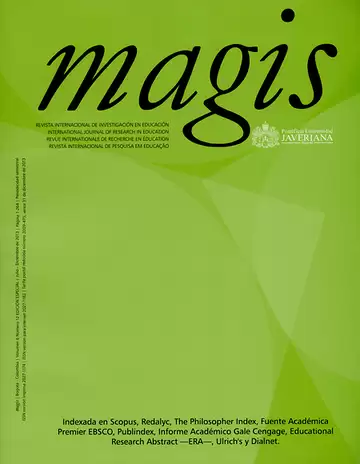Abstract
It widens the conceptual descriptions of perspectives found in literature: the assimilationist (focused on SKS), the moral and humanist (focused on the recognition of the other), the plural epistemic and ontological (focused on alternate episteme and the subject) and the contextual (focused on meaning, interpretation, sociocultural aspects of science, TEK). The paper concludes that bridges are open in both directions and that they imply a more complex scenario than described by teachers. A wider understanding of the topic may allow deconstructing the assimilationist perspective and may guide education processes toward developing an interest in the other bridges.
Magis, International Journal of Research in Education by Pontificia Universidad Javeriana is registered under a Creative Commons Attribution 4.0 International Public License. Thus, this work may be reproduced, distributed, and publicly shared in digital format, as long as the names of the authors and Pontificia Universidad Javeriana are acknowledged. Others are allowed to quote, adapt, transform, auto-archive, republish, and create based on this material, for any purpose (even commercial ones), provided the authorship is duly acknowledged, a link to the original work is provided, and it is specified if changes have behttps://creativecommons.org/licenses/by/4.0/en made. Pontificia Universidad Javeriana does not hold the rights of published works and the authors are solely responsible for the contents of their works; they keep the moral, intellectual, privacy, and publicity rights.
Approving the intervention of the work (review, copy-editing, translation, layout) and the following outreach, are granted through an use license and not through an assignment of rights. This means the journal and Pontificia Universidad Javeriana cannot be held responsible for any ethical malpractice by the authors. As a consequence of the protection granted by the use license, the journal is not required to publish recantations or modify information already published, unless the errata stems from the editorial management process. Publishing contents in this journal does not generate royalties for contributors.
Creative Commons Attribution 4.0 International Public License


